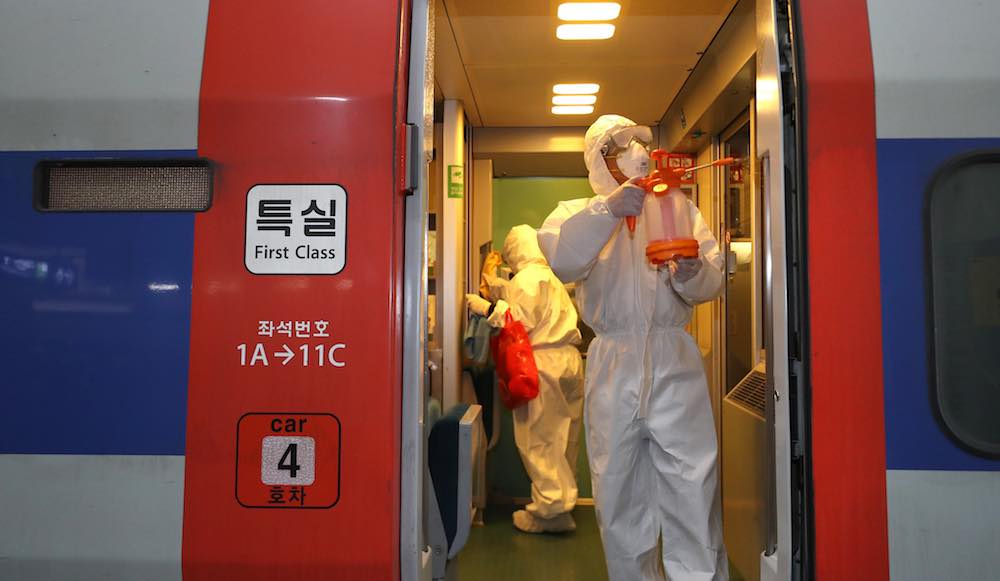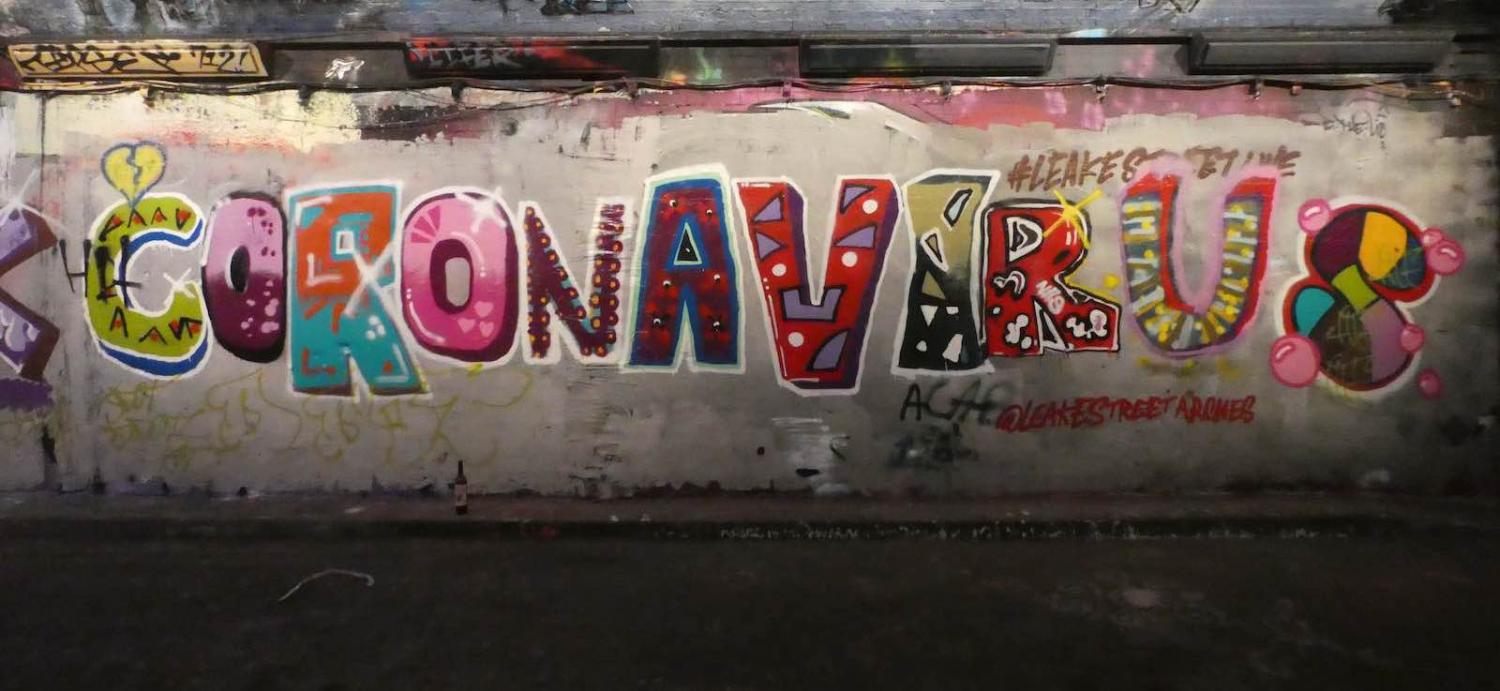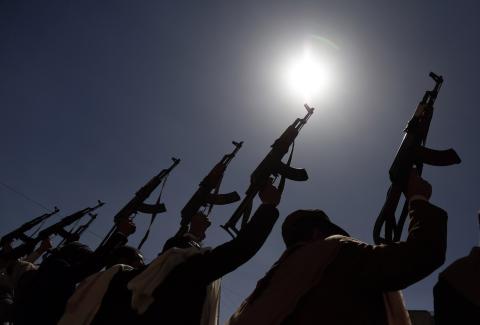The best way to prevent the novel coronavirus? Eating garlic. Or actually, try traditional Chinese medicine. In case you hadn’t heard, a vaccine already exists but the United States won’t share it. Wait a second, the coronavirus doesn’t exist at all, it’s all a conspiracy.
How did I hear all of these theories, which to be clear, have no basis in reality? From my mum, circulated in her numerous WhatsApp groups. The same groups told her that the novel coronavirus came from Chinese people eating bat soup (spoiler alert: it didn’t). It was only weeks later that she asked me if the United States military had brought the virus to China (also untrue).
The global pandemic that has killed thousands and closed borders is awash with disinformation. The World Health Organization declared an “infodemic”, an over-abundance of information – some accurate and some not – that makes it hard for people to find trustworthy sources and reliable guidance when they need it. WHO Director General Tedros Adhanom Ghebreyesus said at the Munich Security Conference in February: “Fake news spreads faster and more easily than this virus, and is just as dangerous.”
Much like globalisation has extended the reach of the virus, social media has extended the reach of fake news. And the stakes are higher.
Disinformation in a pandemic is not new. Operation Infektion was an information warfare campaign by the KGB to spread the rumour in the 1980s that HIV/AIDS was a misfired American biological weapon. Throughout history, scared people have latched onto information that made them feel safe – regardless of whether it was true or not.
But this pandemic is different to any other. None of us are bystanders in this crisis. And more people are at home, more people are online, and more people asking the same questions.
The dilution of information on the internet is currently posing a risk to global health and safety. Much like globalisation has extended the reach of the virus, social media has extended the reach of fake news. And the stakes are higher. During an outbreak, people need to be encouraged to do the right thing to control a disease or mitigate its impact. “It is not only information to make sure people are informed,” according to the WHO’s Sylvie Briand, “it is also making sure people are informed to act appropriately.” Much of the misinformation spread online has been unintentional.
Malign actors are taking advantage of the environment of fear and confusion. A US State Department official reportedly told Congress that Russia was taking the opportunity to sow discord and panic in Western countries and undermine officials in the public eye. “The entire ecosystem of Russian disinformation is at play,” she said. An accompanying report found that nearly two million tweets over a three-week period had disseminated conspiracy theories about the coronavirus overseas.
In this crisis not only is there an absence of clear and credible information from authorities that people trust, but state actors are filling the void irresponsibly. Politicians, officials and state-owned media, and even heads of state, have been elevating disinformation. One of the China’s official spokespeople tweeted a fake video of Italians singing “Grazie, Cina!” as China’s national anthem, “March of the Volunteers”, played in the background. For what it’s worth, many similar videos have falsely shown quarantined Italians singing Katy Perry’s “Roar” or Madonna’s “I Rise” in solidarity.
Another Chinese government spokesperson has doubled down on the rumour that the virus was brought to China by America, which is now being reported in Chinese state media. Russian media have also suggested that Covid-19 was created in a US laboratory in Georgia. Venezuela’s President Nicolas Maduro has said the virus is a possible bioweapon targeting China.

Many elected leaders in the United States have been similarly irresponsible. President Donald Trump has consistently misrepresented the scale and response to the coronavirus in the United States. He has disputed the mortality rate. He has claimed the coronavirus is no worse than a flu. He has circulated inaccurate medical advice. Some media organisations had also spread misinformation of this nature, although most have since changed their tune as the number of infections in the United States skyrockets. American politicians have also pushed the conspiracy that the virus originated in a lab in China.
Technology companies appear to be taking the challenge seriously, with some success. YouTube, Twitter, and Facebook have each made commitments to cleanse their sites of disinformation using existing tools, while working with the WHO to direct users to credible advice. Facebook’s Mark Zuckerberg posted:
As our community standards make clear, it’s not okay to share something that puts people in danger. We’re removing false claims and conspiracy theories that have been flagged by leading global health organisations.
Wikipedia’s approach has been to apply more stringent rules, rather than existing standards, with better results.
Moderating public platforms is only a fraction of the challenge. All of my mum’s inaccurate information was circulated on WhatsApp, the world’s most-popular messaging app, with 1.6 billion active users. Others such as Facebook Messenger and China’s WeChat both have over a billion users. These are effectively a locked box for content moderators.
These platforms were already struggling with the daily deluge of fake news. Now they also need to figure out how to respond to senior government figures using their platforms to spread lies. The Covid-19 crisis is a public health crisis, an economic crisis, and an information crisis.

